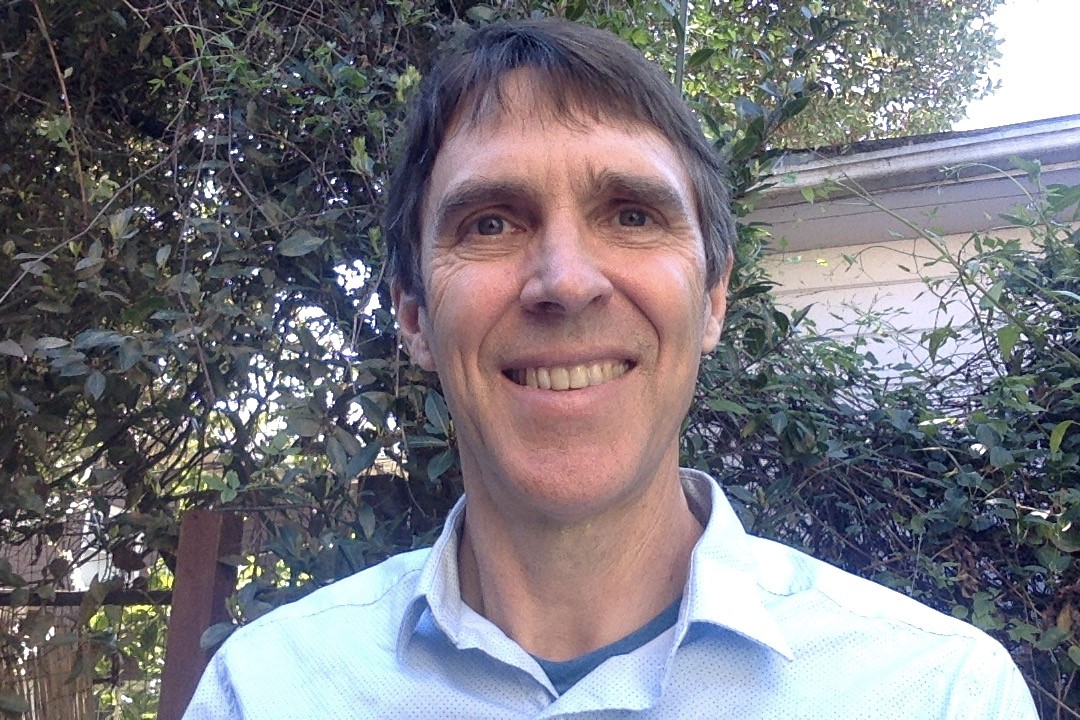Eight minutes and forty-six seconds can feel like a long time – especially kneeling. My knee ached, pressing into the hard surface of the plaza in front of Alta Bates Summit Medical Center’s entrance. My leg trembled, my back ached and my heart was heavy.
About 50 people came out last month to a hospitalist-led #whitecoatsforblacklives “kneel-in” memorial for the recent victims of police violence. Many more told me they were with us in spirit, but patient care had to come first. People from all departments, physicians, EVS, nursing, therapy and the executive leadership team joined the memorial.
There was no script about what to do or think other than to take a knee for 8 minutes and 46 seconds, the amount of time the police officer’s knee was on George Floyd’s neck. The knee was also to recognize Colin Kaepernick’s NFL protest, during which he took a knee during the national anthem to protest the poor treatment of African Americans at the hands of the criminal justice system.
What did people think? I couldn’t hear their thoughts, but I could feel them. The grief over centuries of unjust treatment was palpable. After heads were bowed for almost nine minutes in deep reflection, seeing the same suffering I felt on the faces of my med center teammates was moving.
Afterwards, shouting through masks and a howling foggy wind, we began to share our thoughts: “The AMA calls police violence a public health problem,” “We need to continue to advocate for our patients,” “This has been going on for too long,” among others.
I imagine your hospitalist group is like mine. We don’t talk politics much at work; our politics are evident in our actions: we serve all the community with the same compassion, first-rate skills and technology. At times of crisis, we are moved out of our comfort zone and forced to re-evaluate our current state and act in new ways. We have been doing so for several months with COVID-19. We have pulled together and retooled the medical centers across the country at the cost of much time and other personal sacrifices.
The pandemic of racism and an unjust criminal justice system have existed for centuries. It is well past time to confront them and advocate for change; now is the time to take it on. As my 16-year-old daughter tells me, “Being not a racist is not enough; you need to be actively anti-racist.” We need to step out of our comfort zone on this, too. Simply showing the vulnerability to come to such an event and grieve in public and acknowledge the problem is a good start, but as hospitalists, we need to do more both in our hospitals and our local healthcare ecosystem. In our institutions, implicit bias often clouds our perception. For example, a large body of research shows that African Americans are less likely to receive AICD and CRT. As antiracist, our responsibilities demand we think about care beyond the siloed realm of our med centers. African American disproportionately rely on Medicaid and, thus, rely on care setting we would not send our families. Many needs are simply unmet. I, for one, am sick of discharging patients with substance use disorders without the drug treatment they need to return to a truly healthy state.
SHM provides us with an incredible community and forum to advocate for reforms in many institutions across society that will improve the health and well-being of our marginalized populations – and the African American community in particular. It is up to us, members of SHM, to ensure our organization thinks as broadly and as boldly as it must.
If you have not had a group memorial for the victims of police brutality, I strongly encourage you to organize one – maybe just in your office.
At our event, people of different genders, races and backgrounds undoubtedly felt different mixes of grief, guilt and anguish, but I think we all found that there was something profoundly grounding about the shared experience. We are the most highly social creatures on the planet. Throughout human history we have been making sense of our sorrows by coming together. When we share emotions, we codify our values and strength our culture and fortify our sense of purpose.
So, my advice to you is:
- Get together and grieve publicly with peers. strengthen your sense of purpose. Get your local leadership to support work on implicit bias at your institution.
- Talk politics and see what policies best support dismantling systemic racism and address social determinants of health.
- Think about how you can get involved locally beyond the walls of the hospital.
- Reach out to SHM with your ideas.
During our kneel-in, we were reminded of the value of community and the work necessary to protect it with COVID-19 all around us. Now we need to bring that same spirit and energy to work on the pandemic of racism that this been going on since the founding of this country.



Leif, thank you for such a thought-provoking post. You touched our hearts, challenged our minds, and – perhaps most important – pointed us to some concrete actions we can take to begin promoting change.
– Leslie
Great piece, Leif- thanks for writing it
Well done Leif!
Fantastic piece, Dr. Hass….I hope this is read far and wide, and compels heath care professionals and institutions to take action.
I’m honored and humbled to be your friend.